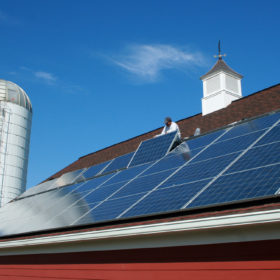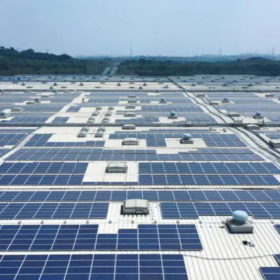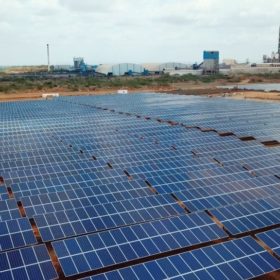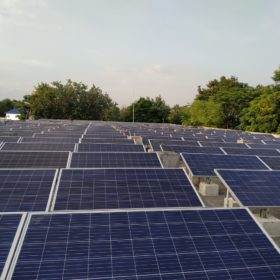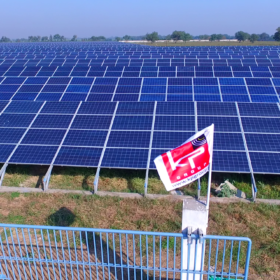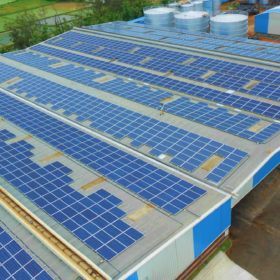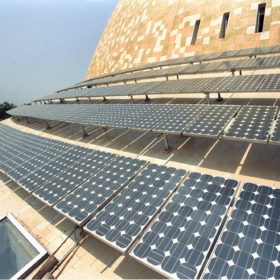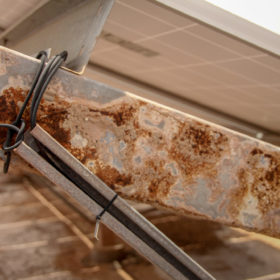AIIB approves US$65 million for Hero Future’s 250 MW solar project
The project—located in Jodhpur district of Rajasthan—is being developed by the Indian developer’s special purpose vehicle Clean Solar Power (Jodhpur).
A little Green Brilliance in a Virginian vineyard
The Indian installer supplied panels for a commercial client in the U.S. who had been inspired by a trip to Rajasthan with his wife in 2008.
Amp Energy installs 8.5 MWp rooftop solar plant for Skoda Auto
Touted to be one of India’s largest rooftop installations, the captive plant uses 25,770 photovoltaic panels covering 63,000 sq.m of available roof space and producing 12.2 million KWh of electricity annually.
Fourth Partner Energy secures US$ 50 million loan from Bank of America
The revolving credit facility will help the Hyderabad headquartered distributed solar developer finance new projects as it looks to add about 250 MW of capacity this year.
Vikram Solar brings solar power to 3 more airports in India
The solar plants commissioned at Dibrugarh (Assam), Gaya (Bihar) and Gondia (Maharashtra) take the Kolkata based module manufacturer and EPC contractor’s cumulative airport project portfolio to more than 4 MW.
Coal India arm tenders 20 MW solar project in Jharkhand
Developers have until January 15, 2020 to submit bids for the project that shall come up at Central Coalfields Limited’s plant in Piparwar of Jharkhand.
Corporate renewable power procurement: Global models and their suitability for India
Commercial and industrial (C&I) sector consumes 51% of the total electricity generated in India, with a mere 3% of this consumption coming from renewable energy. To increase renewable energy uptake among C&I consumers, India needs to explore new models like virtual power purchase agreements, green tariffs, internationally tradable RECs that have already been successfully tried and tested in many countries—according to a report by climate advocacy group WWF India.
India and German development lender to launch rooftop solar scheme
Program aims to drive down the cost of solar electricity to a maximum of Rs2.50/kWh in a nation where tariffs vary wildly from state to state.
Assessing metal leaching from PV modules dumped in landfill
An Indian Institute of Technology research team analyzed around 300 studies about PV panel waste containing carcinogenic metals. The researchers said solar module recycling is not economically profitable and policy support is necessary to avoid panels being dumped in landfill.
Making Delhi A Solar City
The Indian capital has so far installed only 146 MW of rooftop solar capacity, against year 2019 target of 606 MW set under the Delhi Solar Policy. The slow growth is primarily due to certain myths among consumers which need to be debunked with better installer-consumer connect—says Delhi Solar Campaigner Sandeep Dahiya who currently leads the 100% UP, SeeNow, Energy & Power Sector reform work in India as a Campaigner at Purpose Climate Lab.

